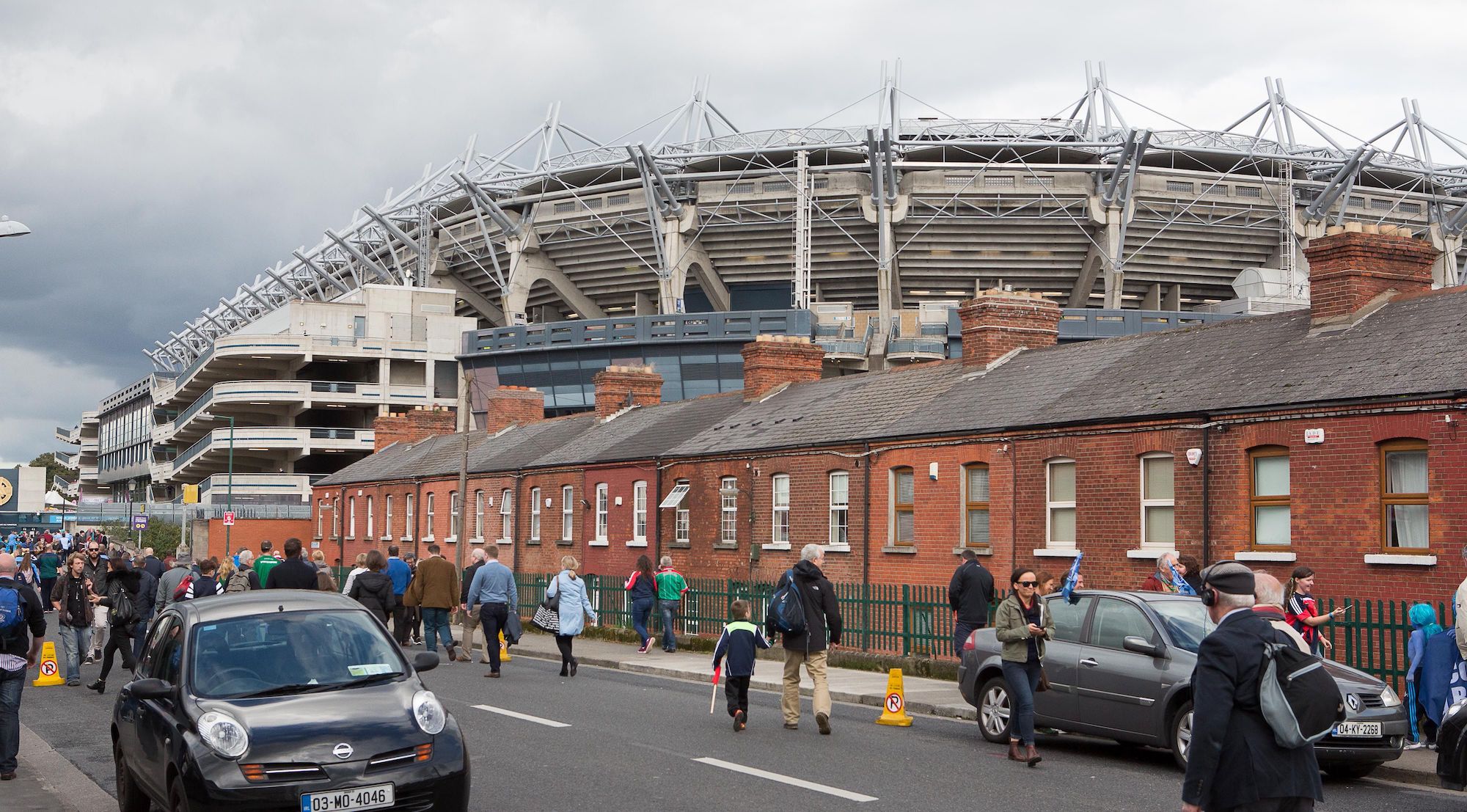This weekend marked the 100th anniversary of the day British armed forces showed up at Croke Park in Dublin as a Gaelic football game was taking place, and turned their guns on fans and players. The massacre, forever known as Bloody Sunday, got the world to pay attention to the atrocities England had been committing in Ireland, and increased public support for the homegrown resistance and international condemnation of the occupiers, likely speeding up the founding of a free Irish republic. Yesterday we ran a marvelous piece by the great Charles Pierce about the slaughter and the political, sporting, and cultural significances of the game of Gaelic.
The biggest of the planned centenary commemorations, some of which had been in the works for years, were downsized or outright canceled because of COVID-19. But the games went on, sans fans and English soldiers. And from the just-completed quarterfinal round of the GAA’s All-Ireland tournament (an annual competition that grips the nation and is played exclusively by amateur athletes representing their home counties) it appears that the Gaelic football gods remembered what happened all those years ago. The four sides that advanced over the weekend to next month’s semifinals—Dublin, Mayo, Tipperary and Cavan—are the exact same quartet that made the semis in 1920, the year of the bloodbath.
“Eerie” is how Joanne Cantwell, host of the The Sunday Game, the national Gaelic postgame show, described the sense of history repeating itself after watching Cavan win the Ulster provincial title and become the last county to punch its ticket to the semis. (Cantwell’s utterance came in a brogue that added brilliance to her every word that won’t translate to the typed page.) One of the most popular sports sheets in Ireland, The42, asked readers if yesterday’s results counted as the “[g]reatest day of shocks in football history?” That’s asking a lot, since the competition dates back to 1887.
But the set of circumstances that climaxed with this year’s freaky foursome could lead one to mull divine intervention. Bookies gave Cavan 14-1 odds to defeat Donegal in yesterday’s match, yet the massive underdog won, 1-13 to 0-12, to advance out of the province for the first time since 1997. (The antiquated and complicated scoring line still used in Gaelic puts 3-pointer “in the net” goals first and single-point, over-the-crossbar tallies after the hyphen, so that translates to Cavan 16, Donegal 12.) And earlier in the day, Tipperary, 0-17, upset favored Cork, 0-14, to take its first Munster title since 1935. Tipp wore green and white uniforms designed to copy the kits the 1920 team wore the year of the massacre. One sleeve was embossed with a portrait of Michael Hogan, the Tipp player murdered by Brits on the Croke Park pitch on Bloody Sunday. Dublin and Mayo sides had already advanced to this year’s semis with Saturday wins.
The 1920 championship final ended up being delayed for nearly two years by the Irish civil war. This year’s All-Ireland matches were postponed by the pandemic; the semis were originally scheduled to be held at Croke Park in late summer. But now Dublin will meet Cavan on Dec. 5, and Mayo faces Tipperary at the same venue a day later.
So, as the brackets shook out, Dublin and Tipperary could meet in this year's All-Ireland championship match. Those are, you guessed it, the same teams that advanced to the 1920 decider. (Another piece of football’s and Ireland’s past that today seems, to borrow from Cantwell, eerie: A squad from Dublin was playing a Tipperary side when the Brits started shooting at Croke Park on Bloody Sunday 100 years ago this weekend.)
Tipperary won that title match with Dublin a century ago. But lots of things in Ireland aren’t the same now as they were. Dublin’s football program, for one. In recent years the side known as the Dubs have become the most dominant team in Gaelic history, and entered the season having won five All-Irelands in a row. That feat had never been accomplished in the 133-year history of the national tournament. So even if the 2020 All-Ireland championship matchup is the same as 1920, and it's Tipp vs. the Dubs all over again on Dec. 19 at Croke Park, surely history will have tired of repeating itself. and the outcome will be different. Right?






